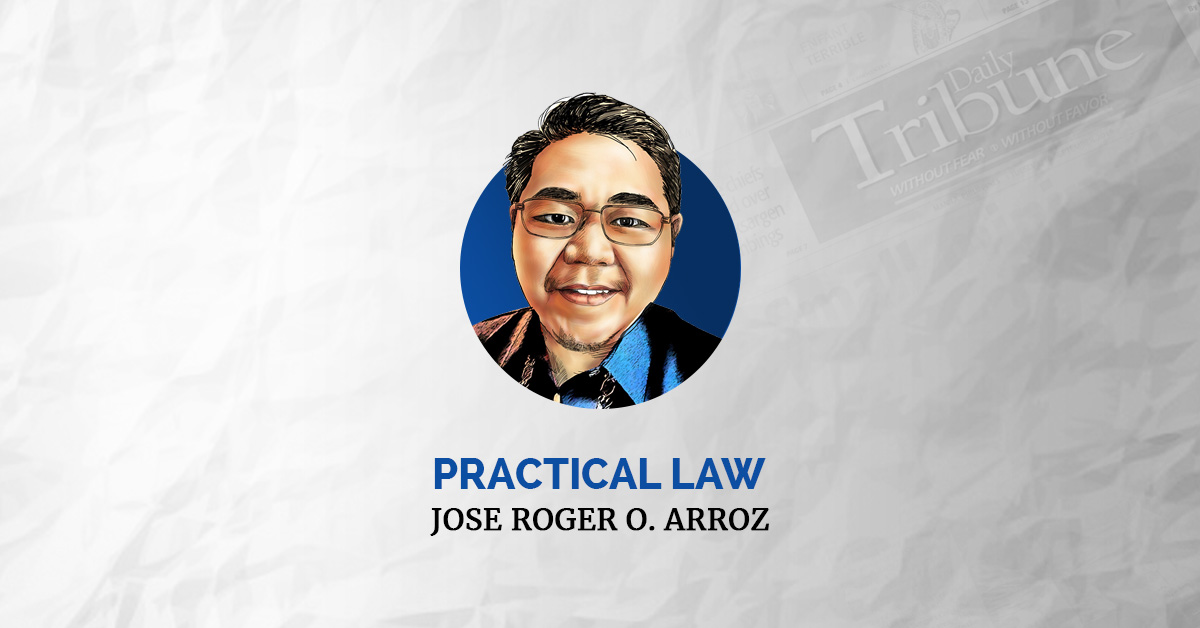The essence of liberty is the freedom “to be let alone.” Democratic legal systems protect our right to privacy. Where one has a reasonable expectation of privacy, someone who has unreasonably and seriously compromised another’s interest in keeping his or her affairs from being known can be held liable for that intrusion.
The State must also respect this, even in exercising Police Power. In Morfe vs Mutoc (G.R. L-20387 31 January 1968), the Supreme Court held that the Constitution provides freedom from unlawful governmental restraints, which necessarily includes the right to privacy or “the right to be let alone” in a civilized society… a system of limited government safeguards an individual from state control.
However, privacy rights are not absolute. The “expectation of privacy” must be “reasonable.” Hence, disclosures or discoveries of a private matter must have happened when the plaintiff was in a place or situation in which the average person would be offended at being intruded upon. Subject to due process, privacy rights may also yield to the regulations necessary for the common good — the promotion of health, morals, education, good order, safety, or the general welfare of the people. To be valid, regulations that affect our privacy must be based on a valid purpose and done through valid means.
A bill recently passed is now under scrutiny because it poses a potential threat to the privacy right of Filipinos. Republic Act. 11934, otherwise known as the SIM Registration Act. This is the first law signed by President Ferdinand R. Marcos Jr. under his administration, more than a hundred days after he took office. This law requires all prepaid SIM users to register with their prepaid telecommunications provider before activation. Existing prepaid subscribers are given a limited time to register, otherwise, the SIM gets deactivated.
SIM buyers will be required by telco companies and direct sellers to provide valid identification documents. Registration requires the disclosure of true and accurate information. Using false or fictitious information, as well as fictitious identities, and carrying out fraudulent activities using the SIM are now penalized. Telcos are also now required to keep a file of their subscriber SIM cards and submit a quarterly report of their list of authorized SIM dealers and agents nationwide. More importantly, the information registered by SIM card owners, like their full names and addresses, may be accessed upon a Court Order or Subpoena. Telcos may be asked by law enforcement agencies to look up the owner of a SIM card when they investigate crimes committed through phones.
SIM cards have become indispensable to people’s digital presence as mobile Internet connectivity can be accessed through them. Owning one is inescapable in this age where everything is becoming digital. With at least 120 million mobile subscribers in the country, it is not surprising that fraudsters would scour the digital space for opportunities. Digital and mobile scams have been on the rise, prompting lawmakers to push for this police power measure. This appears to be a convincing justification for subjecting SIM Cards to government regulation.
Marcos Jr. quipped that this would give law enforcers the “tools needed to resolve crimes perpetrated with the use of these SIM cards as well as providing a strong deterrence against the commission of wrongdoing.” He also assured that information obtained therefrom shall be treated as “absolutely confidential” except upon the subscriber’s written consent. It is worth highlighting that information provided to the telco providers may be disclosed if a court order or subpoena is issued, upon the request of a law enforcement agency. However, it is unclear if the subscriber’s consent will be required in such cases.
Former President Rodrigo Duterte earlier vetoed the measure, much to his critics’ surprise, saying that the law would infringe on constitutionally protected rights. Many echoed this sentiment, begging relevant questions. Is this the best solution for the harm it intends to curb? How exactly will this measure be implemented, and will the means be commensurate to achieve its objectives? Will it be worth the personal privacy we will all be forced to surrender? Perhaps it would be best to look at the law as a whole and the implementing rules of the government agencies charged with its enforcement. Soon we will all find out.
(To be continued)
